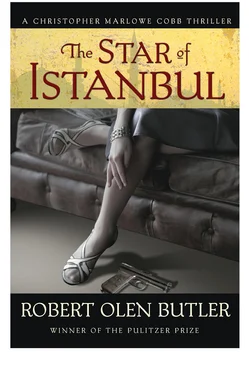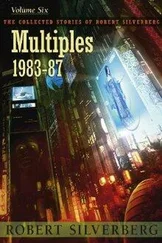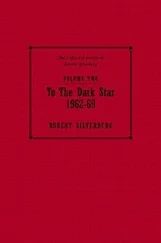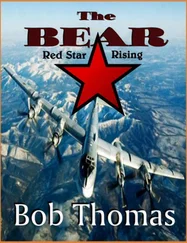I’d given the impression in my report that I’d only seen and identified Selene from afar, nodded at her across the captain’s table, and covertly observed her get-togethers with Brauer. Only that.
Yes, it could have been Selene who made a point of me to the boys at the shop.
Or it still could have been Brauer. Yes, him. He did walk in on Selene and me. I was jazzing the Huns’ prize spy and then I showed up at their secret headquarters. Sure they’d strong-arm me.
I still didn’t say anything to Metcalf and he’d taken to sipping his lately refilled wine.
I sipped mine, and I consciously kept my face as placid as Metcalf’s in spite of an abrupt, retrospective worry: for the Germans, there was still the matter of my knowing about the bookshop. I was worried now for Selene. But there’d been no indication from the meeting I’d heard that they thought she’d compromised them. There was no reason for Brauer to have told her about the bookshop while onboard the ship. If anything, it was Brauer who had some explaining to do. Yet they clearly still trusted him as well. So that detail was a mystery for the Huns. Discounting a severe coincidence, the only possible explanation for my showing up at the bookstore was my being in the same racket they were.
Then Metcalf and I had before us a flaky, golden pie crust the size and shape of a custard cup, sealed at top and bottom and rim.
He and I leaned and sniffed and, to my surprise, Metcalf started talking even as he began to cut into his fat little pie. Normally he’d talk first and then eat in meditative silence. This time, I realized, I was supposed to listen beneath his words. “There’s something exotic inside,” he said. “And it’s all very simple.”
I started to cut as well, and a warm rush of deep-forest, deep-shadow, dug-deep earth smell rose up and into me.
“Truffles,” Metcalf said, lifting a bite before him. “Rare and beautiful. You dig one up; you strip away the earth from it and lay it out bare; you give it some brandy; you put it under the covers; you heat it up; you eat it.”
He put truffle and crust into his mouth. He closed his eyes and kept them closed.
I looked away from him. I cut myself a good bite of Truffes Sous La Cendre and put it in my mouth, the sweet coating of crust dissolving away, and I closed my eyes and I held the warm fold of a truffle on my tongue, tasting a secret thing, hidden long from view, put now inside me and held.
I knew what Metcalf was actually saying.
I chewed the truffle gently and let it go down inside me and I looked over at Metcalf, his eyes closed, his mouth at rest, perhaps holding his own truffle in there still.
“Of course,” I said. “You take it and you eat it.”
“Be careful of women in this job,” he said, without opening his eyes, without changing the angle of his head.
“Yes,” I said.
“Inadvertently, of course, but did you let on somehow about your true identity? When you were with her?” He leaned just enough on the “with” to be discreet but clear about what he meant.
The secondary lesson in this was to trust your intuition about situations. Which is what he was doing right now, about Selene and me. I was already pretty good at that, but it was worth the reminder.
“Of course not,” I said. “She was jazzed by a famous newspaperman. Strictly that.”
“You figure Brauer knew about it?”
“Yes.”
“There you are,” he said.
“There I am,” I said.
He opened his eyes but directed them to his truffes.
I thought he’d warn me about leaving important issues out of my reports.
But he didn’t. I liked him for that. We simply fell silent again.
And we ate until we had new wineglasses and, in them, a decade-old cabernet from Château La Tour Carnet.
“Now you’ll see something,” Metcalf said.
He was not speaking about the wine, though the first few sips were very good, but about the small, porcelain ramekin that arrived for each of us shortly thereafter.
Within, a tiny bird lay on its back, plucked and missing its legs but, I would later learn, in no other way altered, its having been trapped and fattened on millet and figs and drowned in Armagnac — literally drowned to death in French brandy — and then simply salted and peppered and baked in an oven complete with bones and blood and organs. I had barely taken my first look at it when our waiter appeared and handed me a large, embroidered white napkin.
He gave another to Metcalf, who said, “This, my friend, is an ortolan bunting. Considered by many to be the heart and perhaps even the very soul of French cuisine. As for our own souls, we each place a napkin over our head, hiding our face. It is true that this confines and enhances the aromas. But it is also true that we thus hide our faces from God, as we devour this innocent songbird, the human soul, of course, being not without its flaws. The Big Man’s eye is on the sparrow. It is also on the ortolan bunting. You may bite off the head and set it aside if you wish. There is no shame in that. But you eat everything else. Put it in your mouth whole, and after the first celestial rush of its fat, you chew. Very slowly.”
And with this he vanished beneath his napkin.
Was I going too far for Metcalf?
I put the napkin on my head and it dropped before my face.
I picked the bird up in my two hands. Though it weighed less than a pair of kid gloves, it was so clearly a body , I held it with both hands and did not let its head fall back. Though I knew I had to bite that off.
Metcalf was faintly moaning nearby. From the fat, no doubt.
This whole meal. What was this meal? Not a last meal. And surely, it now occurred to me, not a meal at the U.S. government’s expense. Metcalf must have his own money, I thought. A lot of it. He dined here often. He brought me with him. But he was also the man guiding me on behalf of my country.
A crackling sound began nearby. Faint and slow. He was beginning to chew his songbird, this Gentleman Jim.
I lifted the ortolan, inclining my head forward to make way beneath the napkin. I was glad God could not see. Nor anyone else.
I brought the bird to my face and I opened my mouth and my teeth found the bird’s neck and I bit through, the bones yielding easily and the head was free on my tongue and I quickly reached in and removed it and I placed it back into the dish.
I shuddered.
I’ve had some wretched food in my life. I’ve shared food with soldiers at war. Ragtag units badly provisioned in hot countries. I’ve eaten field slumgum, maggoty meat heated in big pots with dirty water and weed roots. But that was from necessity. That was as respite from gunfire. And I had never shuddered.
I shuddered from this songbird’s head.
And from its body, which I now laid on my tongue.
It was tiny, fitting in my mouth as if custom-made for eating, soft there but still structured — I was aware of the whole structure of bones within — and it had settled there only a moment and I had only just closed on it, very gently, when the warm rush of the bird’s body fat — the savor at once rich and delicate — filled my mouth and rolled down my throat.
I did not moan but I understood Metcalf’s exclamation.
Then I began to chew, the bones cracking softly, the taste turning from delicate and reminiscent of hazelnuts to gamey now — bird blood and organ meat, though still in a low key, scaled down to the size of this small singing creature — and even the tiny gamey surges of its lungs and heart carried a hint of the Armagnac, like honey and plum.
And it went on and on, the full chewing of this bird. I eventually grew impatient, but I had a mouth full of tiny bone shards and they were beginning to abrade my mouth and it was as if God found me after all, beneath my embroidered napkin, and His judgment was upon me.
Читать дальше












